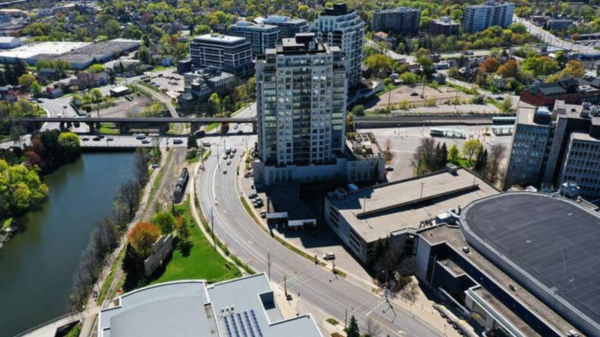
In the changing Guelph real estate market, getting a mortgage is very difficult, especially for people with some kind of credit issue. Private mortgage lending in Guelph represents alternative sources of funds other than traditional banks. These lenders have more relaxed lending criteria and can help make homeownership possible for people with credit issues.
Faster Financing
Private lenders in Guelph offer unparalleled speed and flexibility that cannot be beaten by traditional banks in this fast-paced real estate market. Quick financing is very important to avoid a power of sale or seize investment opportunities in time.
Private lenders in Guelph are exceptional in their quick approval and fast disbursement of loans, which has set a high benchmark in the mortgage lending industry. While traditional banks take weeks to process mortgage applications due to exhaustive credit checks and bureaucratic procedures, private lenders in Guelph can do the whole thing in days. They will ensure fast funding approvals by giving more emphasis on the value of the property and debt ratios rather than exhaustive credit checks.
Quick funding makes all the difference in the competitive real estate market of Guelph. Efficiency from private lenders can prove to be a game-changer in securing dream homes or meeting urgent financial needs.
What If You Have Bad Credit?
For Guelph residents aspiring to capitalize on the current market and considering mortgages to own their property, a low credit score might get in the way. Banks assess loan risk through credit scores; a poor score may lead to rejection due to heightened risk. However, there are a variety of lending options that exist beyond traditional banks. The mortgage industry classifies lenders into three categories:
- A Lender, consisting of banks, provides historically low mortgage interest rates but demands near-perfect credit and verifiable full-time income. Borrowers undergo rigorous mortgage stress tests for approval.
- B Lenders, typically credit unions and trust companies, require a less stringent credit score and substantial income, with a minimum credit score of 550.
- C Lenders, or private lenders, are widespread across Ontario and can offer various second mortgage options or renegotiate principal mortgage terms. Private mortgage loans can be individual or group-based, with specialized mortgage brokers guiding the process.
So don’t worry; your credit score will not be a barrier to getting a mortgage in Guelph’s thriving property market. While traditional banks demand near-perfect credit scores, there are viable alternatives. B and C lenders offer a range of flexible and convenient mortgage options, accommodating those with less-than-ideal credit. Those with bad credit can achieve property ownership by exploring options and securing a financially stable future. Homeownership paths vary; finding the one that suits your unique circumstances is key to navigating the journey successfully.

Options for Private Mortgage Lenders in Guelph
- Renegotiating Principal Loan Terms: A private mortgage loan can help Guelph homeowners fulfill their current primary mortgage terms, ensuring mortgage payments don’t fall behind or settling arrears if already past due.
- Second Mortgage: A private lender can negotiate an additional mortgage on your Guelph home by leveraging the existing equity and calculating the LTV. This can free up funds to cover immediate expenses or invest in a second property in Guelph’s robust market.
- Home Equity Line of Credit (HELOC): A revolving line of credit can be set up using the equity in your home.
- Home Equity Loan: Private lenders will ascertain the existing equity in your Guelph home
- Debt Consolidation Loans: To tackle the burden of multiple debt payments, a private lender can consolidate all your debts under one manageable monthly payment.
- Home Renovation Loans: By utilizing your home’s existing equity, private mortgage loans can fund necessary renovations to enhance your home’s market value in Guelph’s thriving property market.
- Bridge Financing can fill the gap if you require short-term funding for a variety of causes. Like the majority of private loans, bridge financing is negotiated on a short-term basis, often between 1 and 3 years.
Costs Involved in A Private Lender Mortgage
Private mortgage lenders are more expensive than any other type of mortgage lender. There are no standard costs, but most lenders try to offer rates and fees that are competitive with other lenders. Here are some costs to expect as of December 2024:
- Interest Rates: Typically between 8% and 12%
- Lender Fees: Usually between 2% and 4%
- Broker Fees: Set to match the lender fees, which are usually 2% to 4%
- Appraisal Fee: $500 + HST for single-family homes in Ontario. Larger or unconventional properties will cost more.
- Legal fees: These range from $1,000 to $3,000, depending on the mortgage request.
How LTV Affects Costs
The Loan-to-Value (LTV) ratio plays a big role in determining your costs. Simply put, the closer your mortgage is to the lender’s maximum allowable LTV (typically 75%), the higher your rates and fees. Lenders see higher LTVs as riskier, so they charge more to compensate. Calculate this ratio by taking all existing mortgages plus all proposed mortgages and dividing by the appraisal value.
Here’s an example of how costs can vary based on LTV:
| LTV (%) | Interest Rate (%) | Lender Fees (%) | Broker Fees (%) |
| 50% | 8% | 2% | 2% |
| 60% | 9% | 3% | 3% |
| 70% | 11% | 3.5% | 3.5% |
| 75% | 12% | 4% | 4% |
What You Need to Know About Fees
Your mortgage amount includes specific fees, such as lender, broker, and legal, which are included in your mortgage amount and count toward the LTV. If your request is already at 75% LTV before fees are added, you might exceed the limit and not get approved. Appraisal fees are typically not included in the LTV and are paid by the borrower directly after the inspection is performed.
A good mortgage broker will provide documents that clearly outline all costs related to the mortgage, and whether or not they are included in the mortgage amount. Reviewing the costs with your broker is always a good idea to make sure they fit your financial plan.
When applying for private mortgage lenders in Ontario, you must state why you need the money. Private lenders are usually lenient and will accept the most reasonable responses.
Some popular responses include:
- To pay off high-interest credit card debt
- To pay for home repairs or renovations
- To cover living expenses after a work layoff
- To stop a power of sale or foreclosure
- To pay tuition fees for college or university
In many cases, borrowers approach private lenders for mortgages and loans to help consolidate existing debt or prevent property loss through foreclosure or power of sale proceedings. Many people juggle multiple types of debt at once. For example, as noted above, you might have a mortgage and a significant amount of credit card debt or outstanding student loans. Since mortgage and student loans are owed to different collectors, you may have to keep track of multiple monthly debt payments. A mortgage from a private lender can be enough to pay off what remains on your mortgage and your student loans. Upon settling individual debts, you’ll have a monthly payment to your lender, simplifying your financial obligations. Many borrowers find this an easier way to manage debt.
People who cannot qualify for a low-interest rate loan at a bank are the kind of clients that private lenders seek out. Our private lender network can provide mortgages to people turned down by banks. Most private lenders will offer a rate between 8% to 12%.
Real Estate Trends in Guelph
From exquisite landscapes to host cities in Ontario, each has their special charm. Getting a mortgage in this highly competitive Ontario real estate market, nonetheless, remains really tricky, particularly for many with challenges that deny loan approval. Whichever might be your reason to get mortgages, knowing the local housing market should become vital.
Within Southwestern Ontario, there is a city called Guelph, a real gem in natural appeal and location. Known as ‘The Royal City’, Guelph lies 100 km west of downtown Toronto, only 28 km away from the bustling Kitchener. Guelph’s popularity increases with its geography, the University of Guelph, and its closeness to urban centers, making it a first choice.
In July 2024, Guelph’s average home price was $745,737, with 315 new listings. Year-over-year, single-family homes show a 7.7% price drop. Guelph’s property market draws attention, but it is uncertain if it’s a one-time event or the beginning of a trend.
